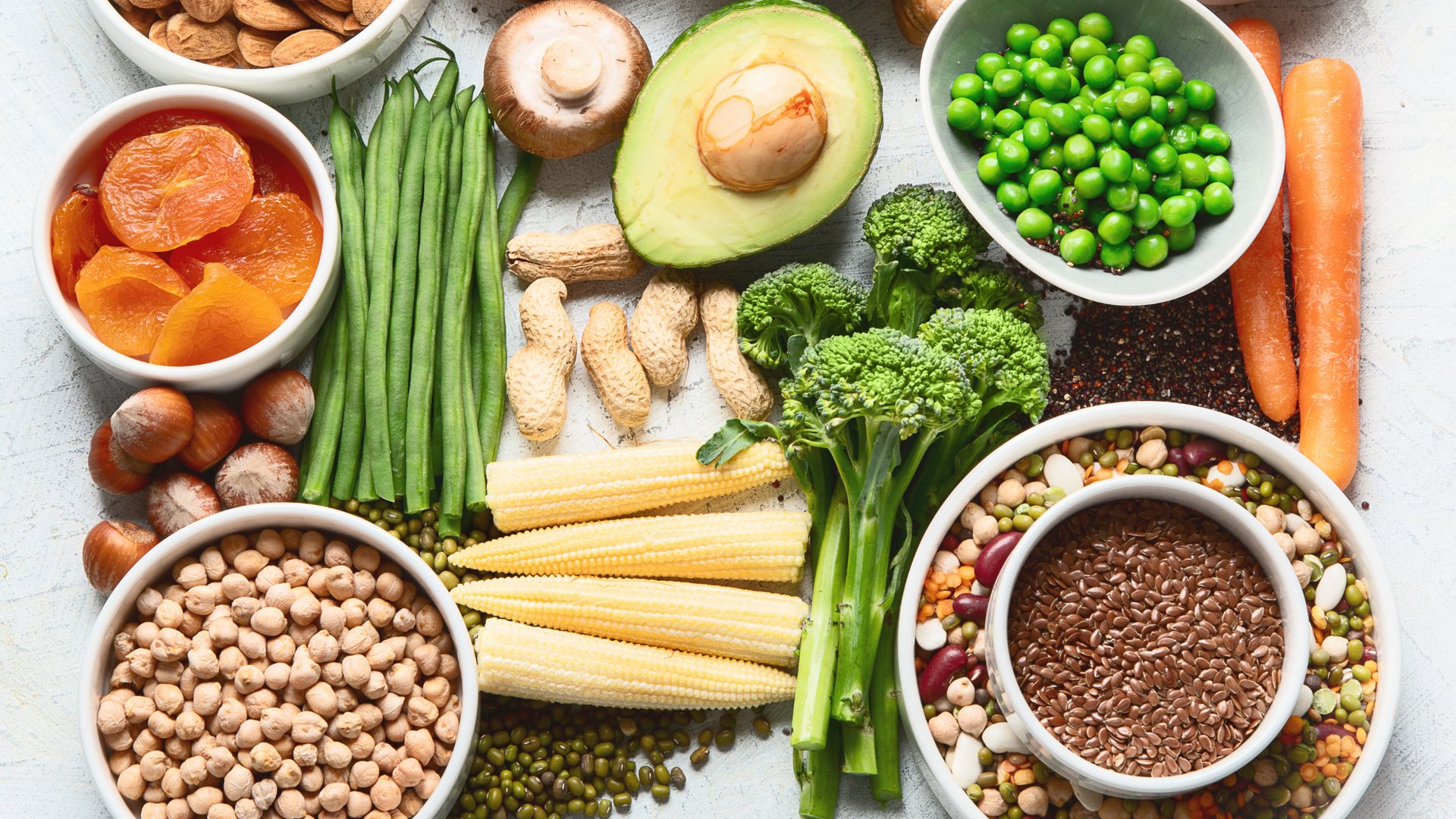It’s a myth that plant-based proteins are inadequate and that plant-based diets are low in protein. Don’t get me wrong, protein is required to build muscle, make hormones and maintain satiety and 15-25% of dietary intake should come from protein. But we can definitely do all this on a plant-based diet if that’s your preference. After all, reducing consumption of animal protein and increasing plant protein is consistent with improvements in human health, particularly in the treatment of chronic disease. All plant foods contain all 20 amino acids, but some are limited in some foods, so consuming a wide variety of plant-based protein is essential.
Legumes
They come with protein and they come with fibre! Legumes are great, and should be a staple for anyone on a plant-based diet. Even if you’re not, they can be added into salads, and or curries for extra protein and fibre even if they’re not your main source of protein. People with gut issues sometimes steer clear from these, but I would advise you to work with a Nutritionist on those issues, so you can tolerate legumes, as you’re missing out on the benefits they provide.
1 cup of legumes (chickpeas, lentils, kidney beans etc) will give you anywhere from 8-16g of protein
Soy Products
How do sot products fit within plant-based protein? A controversial topic recently, with some misinformation about soy causing breast cancer, or more female hormones in men. The research is clear that 3 servings of soy foods per day is totally safe*. What’s one serve, though I hear you asking. That looks like a cup of soy milk, 100g of tofu or tempeh. Edamame beans are also a soy product high in protein.
*This may not apply to those with hypothyroidism, so please always consult with your endocrinologist.
Nuts, Seeds & Spreads
Nuts contain fat, fibre and plant-based protein! As they contain fats, they are fairly energy dense, so the serving sizes we eat of these are smaller than, say, the legumes. For most nuts and seeds you’ll get about 6-9g of protein per 30g of nuts/seeds, which is roughly a handful or 2 tablespoons. And peanut butter? You’ll get about 4g of protein per 1 tablespoon of this lovely spread.
Grains
Grains are a source of plant-based protein believe it or not! They do definitely still have more carbohydrate content (a lot more) than protein, but you’ll still get some protein nonetheless. These grains will make a great addition to any plant-based meal to bump up the protein content, but also some extra fibre too. For every ½ cup of brown rice, quinoa or oats you’ll get about 3-5g of plant-based protein.
I haven’t included dairy products here as a plant-based diet might not include dairy products and that’s OK. Just know you will get a little bit of protein content in your dairy products, especially a true Greek yoghurt. Just beware of “Greek-style” yoghurts, as these don’t contain as much protein as a traditional Greek yoghurt. If you’re unsure, check the amount of protein on the nutritional label!
More information just like this can be found in my group coaching program. Weighing in Lighter is my online weight loss program designed to be the last time you ‘sign up’ for something to lose weight. We meet weekly over 10 weeks where I guide you through the fundamentals to set habits that will maintain your weight – for the rest of your life.

+ show Comments
- Hide Comments
add a comment